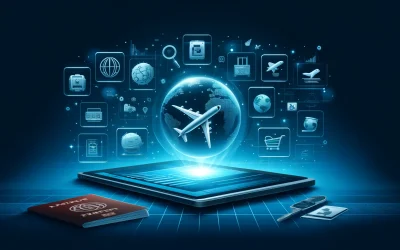The Realities Behind Extraordinary Circumstances
Have you ever encountered a flight delay or cancellation, and came to know about “extraordinary circumstances”? But what are these? Do you have the right to compensation under such circumstances?
Table of Contents
What are Extraordinary Circumstances?
When understanding your rights, the first step is understanding what “extraordinary circumstances” are, as defined by EU Regulation 261/2004.
Extraordinary circumstances refer to unexpected and uncontrollable events that can impact travel, such as natural disasters, extreme weather, political unrest, or strikes.
In the context of air travel, these circumstances may exempt airlines from compensating passengers for flight disruptions as they fall outside the airline’s control and ability to foresee.
Four criteria must be met for a flight problem to qualify as an extraordinary circumstance
- Unforeseeable: Was the cause of disruption outside of anyone’s control?
Such as : Wildfire, Floods and other Acts of god. - External: Did the issue occur outside the airline’s sphere of influence?
Such as : Labour disputes. - Unavoidable: Did all necessary precautions to prevent the disruption occur properly?
- Unexpected: Was the cause due to something unpredictable? Such as : COVID-19
Extraordinary circumstances can range from air traffic control delays and safety-related reasons like bird strikes or bad weather conditions to political unrest or natural disasters, all scenarios where it would be unreasonable to hold an airline liable.
It’s also important to note that airline staff or technical difficulties do not count as extraordinary circumstances and do not exempt airlines from providing compensation.
Right to Compensation for Extraordinary Circumstances
Under EU Regulation 261/2004, have you been denied for flight compensation due to extraordinary circumstances? Airlines often use the phrase “extraordinary circumstances” to deny passenger reimbursement.
But that doesn’t have to be the case.
EU Regulation 261/2004 outlines what constitutes “extraordinary circumstances.” These are exceptional events or situations beyond an airline’s control, such as serious labor disruptions (i.e., strikes), air traffic control limitations, and extraordinary weather conditions.
You cannot claim damages if the delay or cancellation of your flight is due to some of these extraordinary events. Whereas, could receive compensation if the airlines are at fault.
The Impact of a Worldwide Pandemic on Air Travel
We’re all familiar with the disruption to travel caused by the Coronavirus disease 2019 (COVID-19) pandemic.
COVID-19 has been classified as an extraordinary circumstance under EC 261, meaning that airlines are not liable for compensation for lengthy delays, cancellations, and denied boarding due to the impact of the pandemic on air travel and safety.
This exemption applies to any flights that have seen disruption since February 2020 and continue until the end of 2021.
While airlines were not liable for compensation, they were still required to refund passengers for canceled flights. However, they can offer passengers a voucher instead of a cash refund.
Passengers should stay informed about regulation changes and their rights when traveling by air.
The considerations for refunding affected passengers under EU law can be divided into three groups:
1. Unavoidable situations
- Adverse weather conditions: Severe thunderstorms, lightning, high winds, fog, and snow can all cause flight delays.
- Air traffic control delays: Air traffic controllers are responsible for managing the safe flow of air traffic in and around airports. When a lot of traffic or unexpected events occur, such as a medical emergency on another flight, air traffic controllers may need to delay flights to ensure safety.
- Technical problems with the aircraft: Mechanical issues, such as engine problems or hydraulic malfunctions, can also cause flight delays. Airlines are required to inspect and maintain their aircraft on a regular basis, but sometimes problems can arise unexpectedly.
2. Unforeseeable circumstances
- Medical emergencies: If a passenger or crew member becomes ill or injured on board, the flight may be delayed or diverted to the nearest airport so that the person can receive medical attention.
- Security threats: If a suspected security threat is on board or at an airport, the flight may be delayed or canceled.
- Natural disasters: Hurricanes, floods, earthquakes, and other natural disasters can cause airport closures and flight disruption.
- Political unrest: Political instability in a particular region can also lead to flight delays or cancellations.
3. Unusual circumstances
- Bird strikes: Birds can sometimes collide with aircraft, causing damage that requires the flight to be delayed or canceled.
- Animal strikes: Other animals, such as deer or habitat surrounding the airport, can also strike aircraft, causing delays.
- Foreign object damage: If an aircraft strikes a foreign object, such as a piece of debris on the runway, it may need to be inspected and repaired before it can fly again.
- Missing passengers or crew members: If a passenger or crew member does not show up for a flight, the flight may be delayed to allow time to locate them.
The last group of considerations is more complicated- these scenarios don’t fall into the above categories but still warrant exemptions from compensating passengers.
Examples could include unexpected high levels of disruption caused by significant events such as natural disasters or civil unrest in foreign countries.
Travelers should be provided with alternative compensation forms, such as those listed above, without relying on full denial of receipt of compensation under EU law.
Alternatives Options to Compensation That Fall under EU Law
Rather than denying reimbursement, an airline may offer alternatives to passengers affected by extraordinary circumstances.
Such benefits could include:
- Reimbursement: If your flight is canceled, you are entitled to a full refund of the price of your ticket. Airlines may also offer passengers a voucher for future travel instead of a cash refund.
- Rerouting: If your flight is delayed or canceled, the airline must offer you a rerouting option on their own or on another airline. The rerouting option must be at the earliest available opportunity and must be to your final destination or to a point where you can arrange alternative transportation to your final destination.
- Accommodation and assistance: If you are stranded overnight due to a flight delay or cancellation, the airline must provide you with accommodation and assistance, such as food and drinks. The airline must also cover the cost of transportation to and from the hotel.
- Care for minors: If you are traveling with a minor and your flight is delayed or canceled, the airline must provide care for the minor until the next available flight. This may include providing the minor with food, drinks, and a place to sleep.
Furthermore, airlines should always help passengers contact their families or reach their final destination with alternative transportation options (where applicable).
By providing travelers with alternatives, such as these forms of compensation listed above, airlines can help lessen the burden of delayed or canceled flights due to extraordinary events more consistently and economically for everyone without relying on full denial of receipt of compensation under EU law.
Related Questions
What should passengers do if they believe their flight delay or cancellation was not caused by extraordinary circumstances?
The burden of proof is on the airline to demonstrate that the delay or cancellation was caused by extraordinary circumstances, and if the passenger feels that this is not the case, they may have a valid claim for compensation.
It’s important to gather as much information and documentation as possible to support the claim, such as boarding passes, flight tickets, and any communication with the airline.
Can airlines use the "extraordinary circumstances" defense to avoid paying compensation for delays and cancellations?
Examples of such circumstances include severe weather conditions, political unrest, security risks, and air traffic control strikes. It’s important to note that the burden of proof is on the airline to demonstrate that the delay or cancellation was caused by extraordinary circumstances.
If a passenger believes that the airline is using this defense incorrectly, they may wish to seek the assistance of a claims management company or legal professional to help them pursue compensation.
Can airlines use technical problems with aircraft as an excuse for extraordinary circumstances?
This was confirmed by several court rulings in the EU, which have stated that technical problems with aircraft are not extraordinary circumstances unless they are caused by a hidden manufacturing defect that could not have been detected through regular maintenance or inspections.
Therefore, if a flight is delayed or canceled due to a technical problem with the aircraft, passengers may still be eligible for compensation under EU Regulation 261/2004, unless the airline can prove that the problem was caused by an extraordinary circumstance.
What are some alternatives to pursuing compensation through legal means?
These alternatives include contacting the airline directly to request compensation, hiring a claims management company to handle the claim, seeking assistance from consumer advocacy groups, and making a claim through travel insurance.
However, it’s important to note that these alternatives may not always be successful, and legal action may still be necessary in some cases.
What steps can airlines take to prevent or mitigate the impact of "extraordinary circumstances" on their flights?
These include implementing proactive maintenance schedules, investing in weather monitoring technology, having contingency plans in place, providing timely and accurate information to passengers, and offering compensation to affected passengers.
By doing so, airlines can prepare for and respond to unexpected events, which can help minimize the impact on their flights and passengers.
How can passengers stay informed about their rights and options regarding flight delays and cancellations caused by extraordinary circumstances?
It’s important for passengers to know their rights and options in case of a delay or cancellation, as well as to stay informed about any updates or changes to relevant regulations or airline policies.
Pramod Ram
Digital Marketing Strategist
Pramod Ram heads the Online Marketing and Content Marketing Team at Claim Flights GmbH. He loves to travel, read books, watch movies and do intensive research.
10 best flight-booking sites of 2024
Are you searching for the perfect flight booking portal to snag the cheapest airfares for your next trip? You're not alone. Today, the internet is flooded with options that claim to offer the fastest and most cost-effective booking...
Top 10 Most Beautiful Places In The World To Visit In 2024
When it comes to the world, the place is one of the most beautiful arenas. The most amazing places in the world allow you to set your foot in the world to enjoy the view of the world. In this blog, we have brought for you the top 10 most...
Flight Delays Due To Technical Problem
When Technical Glitches Ground Your Plans: Flight Delays Explained Flight delays can be incredibly frustrating, especially when they disrupt carefully planned itineraries and cause inconvenience to travelers. While various reasons can...



